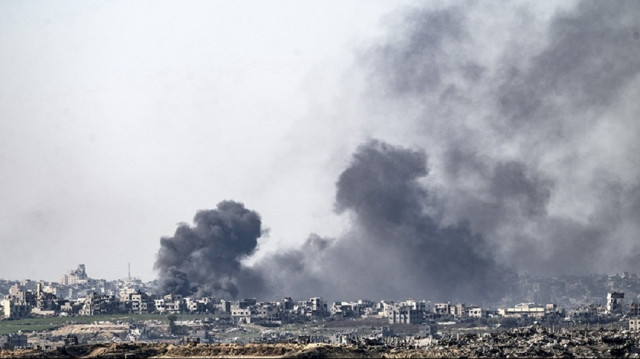
Mediators say Hamas response to prisoner swap plan will determine next phase of indirect negotiations with Israel
Efforts to secure a ceasefire and prisoner exchange between Israel and Hamas have reached a sensitive juncture, with the proposed list of Palestinian prisoners to be released emerging as a major sticking point, according to reports.
Israel's public broadcaster KAN reported that the issue of which Palestinian detainees would be freed has become one of the most difficult points in the talks.
Mediators from Qatar, Egypt, and the US have submitted a draft proposal outlining the terms for the release of Palestinian prisoners. Talks on that specific proposal have not yet officially begun, but sources close to the negotiations said Hamas's response will determine whether the process moves forward.
Mediators have also delivered Israel's revised proposal concerning another long-contested disputed issue: the timeline and map for Israeli military withdrawal from Gaza.
According to the latest version, Israel would pull back from the Morag Corridor — a strategic area between Rafah and Khan Younis in southern Gaza — and reduce the width of its self-declared buffer zone.
Sources involved in the talks in Doha said discussions have made some headway, though major differences remain. Hamas is expected to review the updated offer over the weekend.
Israel's Channel 12 reported that under the new plan, Israel would maintain a 1.5-kilometer-wide zone north of its border with Egypt and enforce a 1-kilometer-wide buffer zone around the entire perimeter of the Gaza Strip.
The draft deal includes a proposed ratio for the number of Palestinian and Israeli prisoners to be exchanged. The names involved are still being discussed and have not been finalized.
- Talks over 60-day ceasefire
US President Donald Trump recently claimed that Israel had accepted the conditions for a 60-day ceasefire in Gaza. Mediators from Qatar and Egypt formally presented the plan to Hamas.
Hamas said it gave a “positive response” to the ceasefire and hostage deal and signaled readiness to begin implementation talks.
Israeli officials, however, rejected certain amendments made by Hamas to the Qatari proposal, calling them unacceptable. Still, Israel sent a delegation to Doha for continued negotiations.
The parties have moved closer to a deal that would include a temporary 60-day ceasefire, the release of 10 living and 18 deceased Israeli hostages, and the launch of talks aimed at a permanent ceasefire.
But key issues remain unresolved, particularly Israel's plan to maintain a military presence along the outer edges of Gaza and continue operations in Rafah.
Israeli officials also said they intend to set up a detention facility in Rafah, with the goal of deporting Palestinians to third countries — a move that has drawn criticism from humanitarian groups and legal experts.







